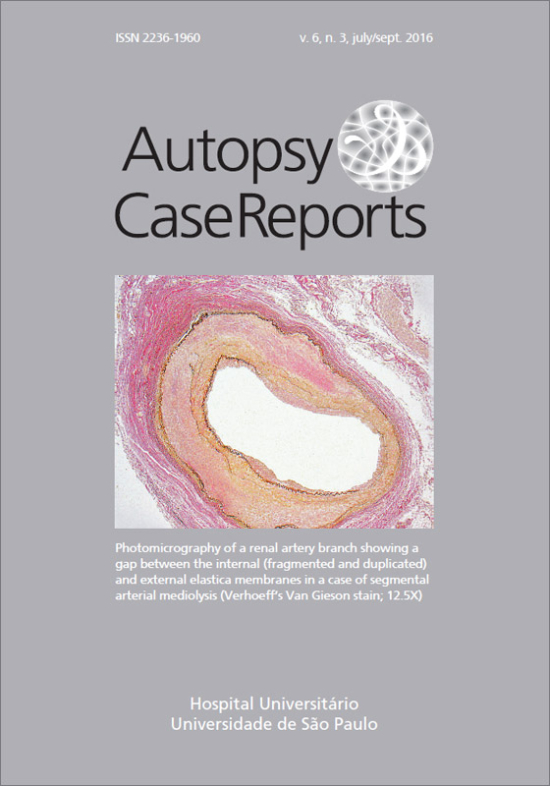Vocal fold mobility alteration reversed after thyroidectomy
DOI:
https://doi.org/10.4322/acr.2016.039Keywords:
Goiter, Vocal Cord Paralysis, ThyroidectomyAbstract
The involvement of the inferior or recurrent laryngeal nerve (RLN) in mobility derangement of the vocal folds occurs more frequently due to thyroid malignancy invasion. Although uncommon, the same derangement, which is caused by benign thyroid entities, is also described and reverts to normality after a thyroidectomy in up to 89% of cases. In these cases, the pathogenesis of the vocal cord mobility disturbance is attributed to the direct compression of the RLN by massive thyroid enlargement. The authors describe three cases of patients presenting unilateral vocal cord palsy, which, before surgery, was diagnosed by laryngoscopy concomitantly with large and compressive goiter. Vocal fold mobility became normal after the thyroidectomy in all three cases. Therefore, it is noteworthy that these alterations may present reversibility after appropriate surgical treatment. An early surgical approach is recommended to reduce the nerve injury as much as possible; to preserve the integrity of both RLNs since the nerve function will be restored in some patientsDownloads
Download data is not yet available.
Published
2016-09-11
Issue
Section
Article / Clinical Case Report
License
Copyright
Authors of articles published by Autopsy and Case Report retain the copyright of their work without restrictions, licensing it under the Creative Commons Attribution License - CC-BY, which allows articles to be re-used and re-distributed without restriction, as long as the original work is correctly cited.
How to Cite
Miazaki, A. P., Araújo-Filho, V. J. F., Brandão, L. G., Araujo-Neto, V. J. F. de, & Matos, L. L. (2016). Vocal fold mobility alteration reversed after thyroidectomy. Autopsy and Case Reports, 6(3), 53-57. https://doi.org/10.4322/acr.2016.039



